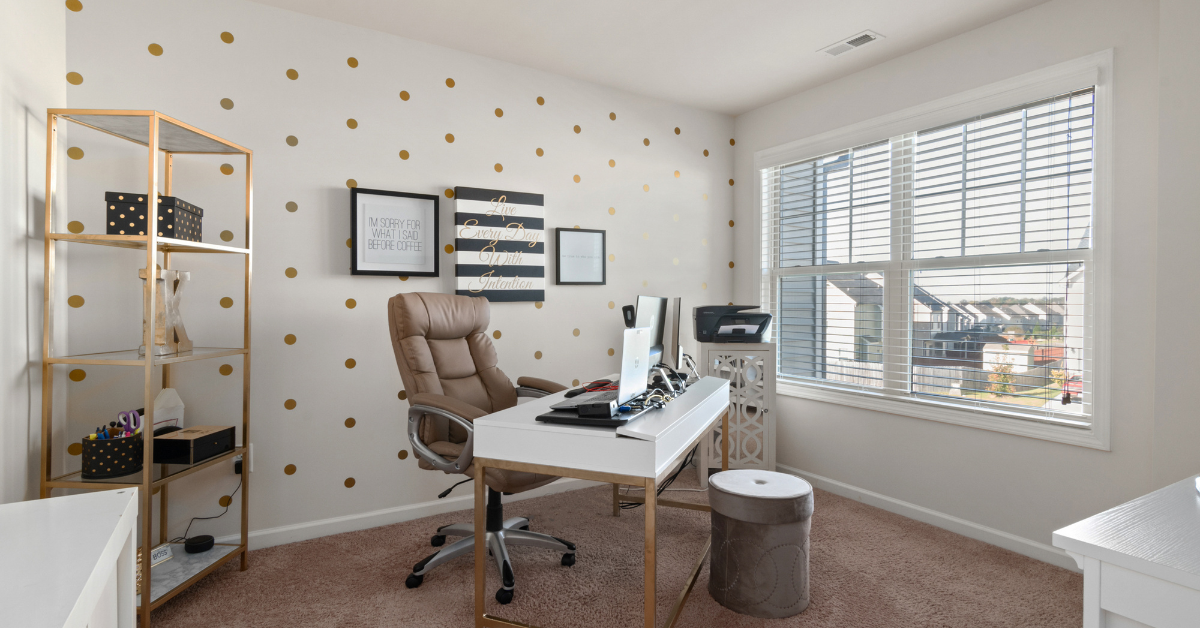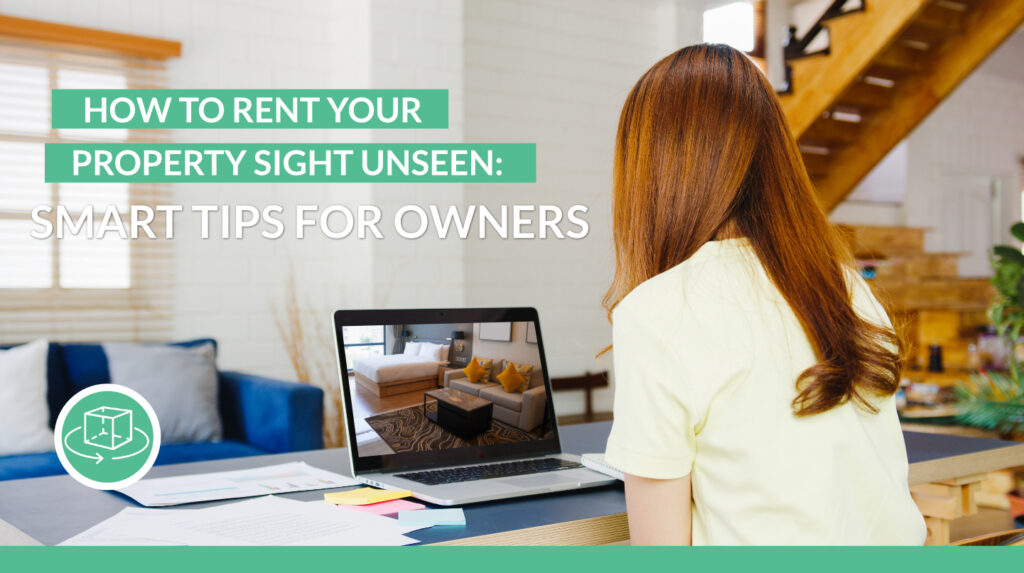The Rise of Remote Work: Adapting Rental Properties in Boston for Home Offices
Reading Time: 5 minutesThe COVID-19 pandemic last 2020 fundamentally changed the way we work. With social distancing measures in place, companies across the globe rapidly adopted remote work models. While many offices have reopened, a significant portion of the workforce continues to work remotely, at least part-time. This shift has had a lasting impact on the rental market,…

The COVID-19 pandemic last 2020 fundamentally changed the way we work. With social distancing measures in place, companies across the globe rapidly adopted remote work models. While many offices have reopened, a significant portion of the workforce continues to work remotely, at least part-time. This shift has had a lasting impact on the rental market, with a growing demand for properties that cater to the specific needs of remote workers.
Traditionally, apartments have been designed primarily for living, not working. Tenants seeking remote work-friendly spaces are increasingly looking for features that enhance their productivity and well-being at home. As a Boston property owner, understanding and adapting to this evolving landscape can give you a competitive edge in attracting and retaining tenants.
Table of Contents
The Boston Remote Work Landscape

As remote work continues to reshape job markets globally, Boston has witnessed a significant uptick in the number of professionals working from home. Recent surveys indicate that nationally, 35% of workers in remote-capable jobs are now working from home all the time. This shift has brought both opportunities and challenges, particularly in terms of residential living spaces.
Most Boston apartments are great for city living, but not always ideal for working from home. They tend to be smaller and close to the action, which can be noisy. This makes it tough for remote workers to find a quiet space to focus and be productive. Landlords and renters alike need to think about how these apartments can be adjusted to fit the needs of today’s work-from-home professionals.
Adapting Your Boston Rentals for Home Offices
As remote work gains popularity, it’s crucial to adapt your Boston rentals to fit this trend. This section provides simple tips on how to use property space wisely, enhance tech features, and create a comfortable environment that supports both work and relaxation. These changes will help make your property more appealing to today’s remote workers.
Optimize Existing Space

For landlords and property managers, rethinking the use of space within existing floor plans is crucial. One effective strategy is the introduction of multi-functional furniture, such as fold-down desks or expandable workstations that can easily be stowed away when not in use. This not only maximizes limited space but also caters to the aesthetic needs of the unit.
In addition to space-efficient furniture, the quality of the environment plays a significant role. Proper lighting is essential, preferably natural light supplemented by soft artificial sources that reduce eye strain during long work hours. Ergonomic furniture, such as adjustable chairs and desks, can also make a substantial difference in tenant comfort and health, potentially enhancing productivity.
Promote Tech-Friendly Features
In the era of Zoom meetings and cloud computing, robust internet service is non-negotiable for remote workers. Properties that offer strong, reliable internet connections stand out in the competitive rental market. Landlords might consider upgrading their services to include high-speed Wi-Fi and dedicated access points, particularly in designated work areas. Additionally, installing ample electrical outlets and built-in cable hookups can greatly increase the functionality of a home office space.
Create a Work-Life Balance Environment
Designing a space that clearly delineates work from personal life can help mitigate one of the biggest challenges of remote work: the blurring of boundaries between the two. Landlords can facilitate this by incorporating design elements like room dividers or sliding panels that physically separate work areas from living spaces.
Soundproofing is another critical feature that can dramatically improve the work-from-home experience. By installing sound-absorbing panels or upgraded window fittings, landlords can help reduce the intrusion of external noises, which is particularly appealing in a busy city like Boston.
Marketing Your Remote-Friendly Rentals

To effectively attract remote workers to your properties, marketing your remote-friendly rentals is crucial. This section guides you on how to enhance your property listings and strategically target the remote work demographic, ensuring your rentals stand out in a competitive market.
Tailor Property Listings
When advertising properties that are optimized for remote work, specificity is key. Listings should explicitly highlight features that appeal to remote workers, such as dedicated workspaces, high-speed internet access, and ergonomic amenities. These details help potential renters visualize living and working in the space, making your property more attractive compared to traditional listings.
Including high-quality photos of the home office setup within the apartment can also make a significant impact. These should showcase well-lit, neatly organized spaces that emphasize functionality and comfort. A visual representation of a potential work environment can be the deciding factor for remote workers when choosing their next rental.
Target Remote Worker Demographics
To effectively reach remote workers, using the right marketing channels is crucial. Spread the word about your remote-friendly rentals where remote professionals hang out online. This includes LinkedIn, job boards specifically for remote work, and social media groups focused on telecommuting. Highlight how your rentals fit the remote work lifestyle. Talk about the flexibility of working from anywhere in the apartment and how it can help with work-life balance. This will grab the attention of remote workers searching for their perfect place
The Future of Remote-Friendly Rentals
The rise of remote work is not just a transient phase but a transformative shift that is likely to have long-lasting impacts on rental property design and amenities. As more people choose or are required to work from home, the demand for living spaces that accommodate this need will continue to grow.
This shift necessitates a rethink in how properties are designed, marketed, and managed. Features like acoustic improvements for noise reduction, better internet infrastructure, and spaces that can flexibly serve as efficient offices will become standard expectations rather than premium additions.
Conclusion
The adaptation of rental properties to meet the evolving needs of tenants is no longer an option but a necessity in the face of changing work patterns. Property owners and managers need to anticipate and react to these changes proactively, ensuring their offerings align with the expectations of a growing remote workforce.
If you want your properties to be a top choice for remote workers in Boston, consider partnering with Green Ocean Property Management. We specialize in all-around property management and we can help transform your traditional rental units into remote-friendly spaces.
Contact us today to learn how we can help you adapt and succeed in this new rental market landscape.
Benefits of Installing a Coin Laundry
Reading Time: 3 minutes One of the most common questions that we get asked as a landlord is, “I don’t have laundry in my building or I have normal laundry that isn’t coin-op, should I switch or install coin-op laundry?” In every single building that we manage, we always switch to coin-op laundry and we’ll tell you why….
How to Rent Your Property Sight Unseen: Smart Tips for Owners
Reading Time: 3 minutes In this article, we will be discussing sight unseen rentals. What does that mean? It means when an apartment gets rented by someone who hasn’t seen the apartment in person. A lot of problems can come from this because they haven’t seen the property. They’re going to base upon either pictures, videos, or 3D tours. They…
Building a Brand for Your Boston Short-Term Rental Business
Reading Time: 4 minutesBranding is the cornerstone of any successful business, and Boston-based short-term rental companies are no exception. As the industry grows increasingly competitive, creating a robust brand identity is crucial to stand out and attract both guests and property owners. This comprehensive guide provides twelve essential steps to fortify your short-term rental business and encourage its…








